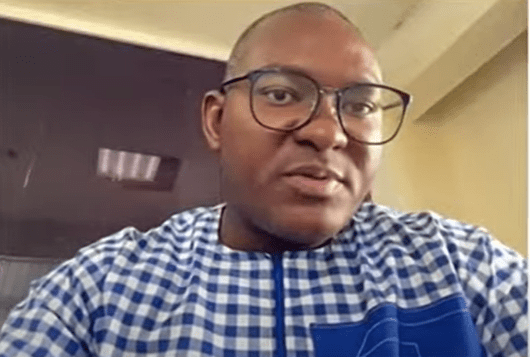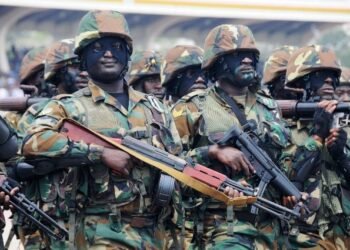The fragile Bawku peace process could be derailed if urgent steps are not taken to restore trust between the community and security forces, warned Dr. Victor Doke, a security analyst and lecturer at the Kofi Annan International Peacekeeping Training Centre.
Dr. Doke, speaking with insight shaped by years of conflict resolution and security training, painted a worrying picture of a situation where the very institutions meant to secure the region are now seen with suspicion.
According to him, trust is the cornerstone of effective security operations, especially in conflict-prone areas like Bawku. Once eroded, rebuilding it is a steep climb.
“The main purpose of having security forces is to ensure that people trust them to prevent the other faction from crossing over, attacking, or singling them out.”
Dr. Victor Doke
However, that trust, he stressed, is quickly lost when civilians—going about their daily lives—feel threatened or attacked by those in uniform.
His comments come amid ongoing tensions in the Bawku area, where clashes, mistrust, and cultural friction have repeatedly undermined peacebuilding efforts.

At the heart of Dr. Doke’s analysis is a pointed critique of how peacekeeping personnel are operating in Bawku.
Instead of being seen as protectors of law and order, he noted, security forces risk becoming symbols of fear and division due to heavy-handed tactics and a seeming disregard for local authority.
“If, while going about your business, a security person attacks you instead, it creates the perception that they are not there to protect life and property or maintain law and order.”
Dr. Victor Doke
According to him, it is a damning indictment of a security approach that appears more adversarial than protective.
Peace In Bawku Depends On Cultural Sensitivity
What makes the Bawku peace process uniquely complex, according to Dr. Victor Doke, is its deep entanglement with traditional authority and local customs.
Unlike other regions where state power may dominate, in Bawku, the chiefs and kings hold significant influence, and their role in peacebuilding is indispensable.
This is where the current approach by some security operatives is proving dangerously counterproductive.

“If security forces engage in peace-building activities but then ignore the norms and traditions of the land, or act against directives given by local kings or chiefs, then we are sure to have these kinds of incidents.”
Dr. Victor Doke
Such disregard, he argued, does not just offend tradition—it alienates the very people the security forces are meant to protect.
Once alienated, the population becomes uncooperative, cutting off the flow of vital information that could help preempt violence or mediate disputes.
Dr. Doke indicated that trust is necessary for cooperation, emphasizing that “when trust is broken, people will no longer provide you with vital information, and the situation will escalate.”
That trust, he added, isn’t a matter of strategic planning—it is earned through respectful engagement and consistency in protection.
Halfway into what many hoped would be a decisive peace initiative, the sense of fatigue and skepticism in Bawku is palpable.
Efforts led by traditional leaders and supported by the government have made some progress, but without grassroots cooperation—fueled by genuine trust—lasting peace remains a distant dream.
Dr. Doke emphasized the importance of local buy-in, particularly in areas where identity and historical grievances run deep.
He urged security agencies to drop the one-size-fits-all mentality and start listening to the people they’re deployed to protect.
“The people in the area will not trust the security personnel if they insist on doing things their own way. That’s what has happened. It’s as simple as that.”
Dr. Victor Doke
Hope Hinges On Mutual Respect
The Bawku peace process is not lacking in high-level diplomacy or mediation efforts. What it sorely lacks, according to Dr. Doke, is humility from the security apparatus and a willingness to adapt to local realities.

Simply increasing boots on the ground without addressing the growing chasm between civilians and soldiers only reinforces fear and further disconnects the people from the process.
His final caution was as sobering as it was direct: “Without this, efforts to resolve the conflict may continue to falter, and tensions could rise further.”
Bawku stands at a crossroads. It can either become another footnote in Ghana’s history of unresolved ethnic conflict or a shining example of how trust and tradition can be the bedrock of peace.
But for the latter to happen, security forces must not just be present—they must be present in the right way.
READ ALSO: ECG Saw ‘Zero Investment’ Amid Akufo-Addo’s Privatization Drive – Former MD



















